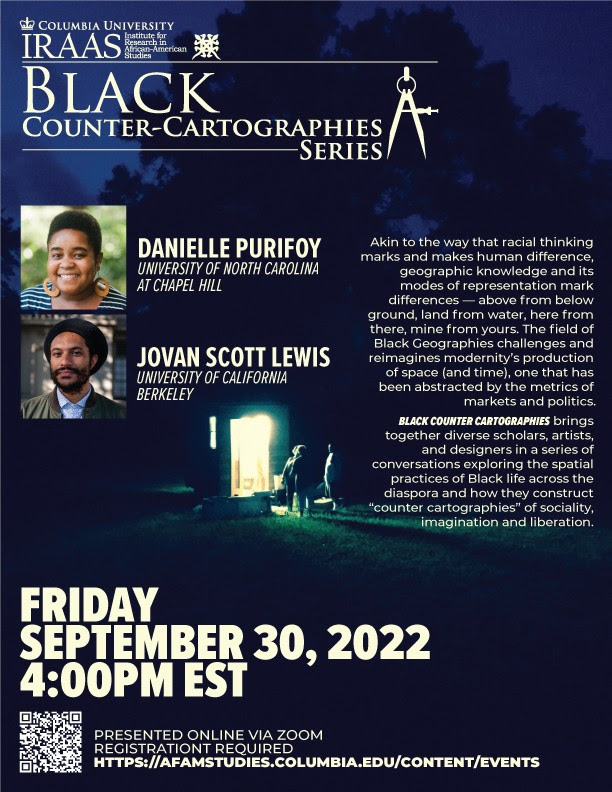
This event will be held virtually. Registration required.
Institute for Research in African-American Studies, Department of African-American and African Diaspora Studies
Institute for Comparative Literature and Society
Jovan Scott Lewis, University of California, Berkeley
and
Danielle Purifoy, University of North Carolina at Chapel Hill
Presented online via Zoom, please register
https://columbiauniversity.zoom.us/webinar/register/WN_qvtvKZCGQUSGyyS82zbBDQ
Akin to the way that racial thinking marks and makes human difference, geographic knowledge and its modes of representation mark differences—above from below ground, land from water, here from there, mine from yours. The field of Black Geographies challenges and reimagines modernity’s production of space (and time), one that has been abstracted by the metrics of markets and politics. Black Counter Cartographies brings together diverse scholars, artists, and designers in a series of conversations exploring the spatial practices of Black life across the diaspora and how they construct “counter cartographies” of sociality, imagination and liberation.
Jovan Scott Lewis, Associate Professor and Chair of Geography at the University of California, Berkeley. He is the author ofScammer’s Yard: The Crime of Black Repair in Jamaica(University of Minnesota Press) andViolent Utopia: Dispossession and Black Restoration in Tulsa(Duke University Press). He studies racial capitalism, underdevelopment, and reparations as a means of understanding the historical constitution, but also the future, of Blackness as a lived experience and political project.
Danielle Purifoy is Assistant Professor of Geography at The University of North Carolina at Chapel Hill. She earned a J.D. from Harvard Law School and a Ph.D in Environmental Policy and African American Studies from Duke University. Her research focuses on the racial politics and law of development in Black towns and communities, and on Black ecological relations.







